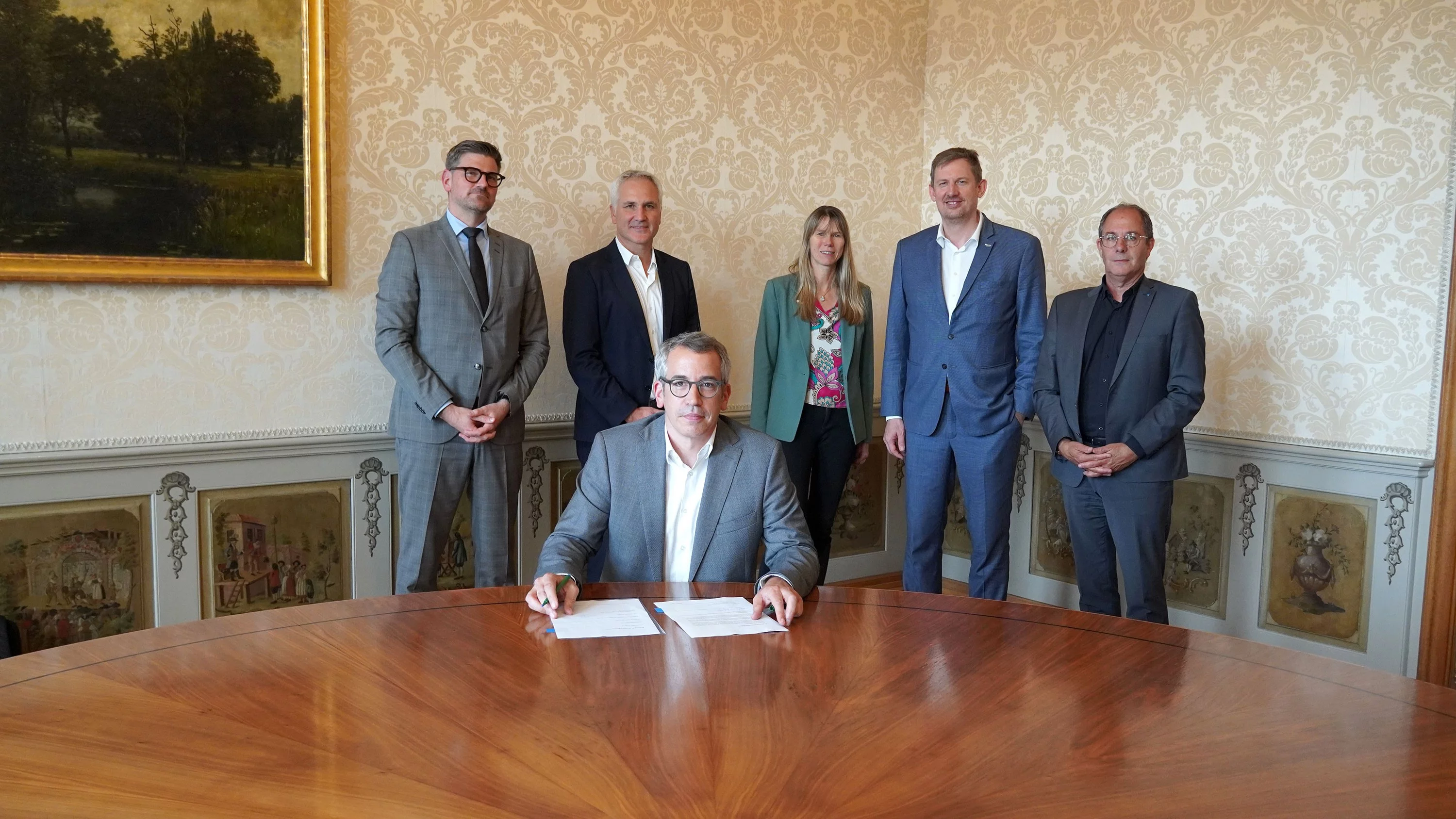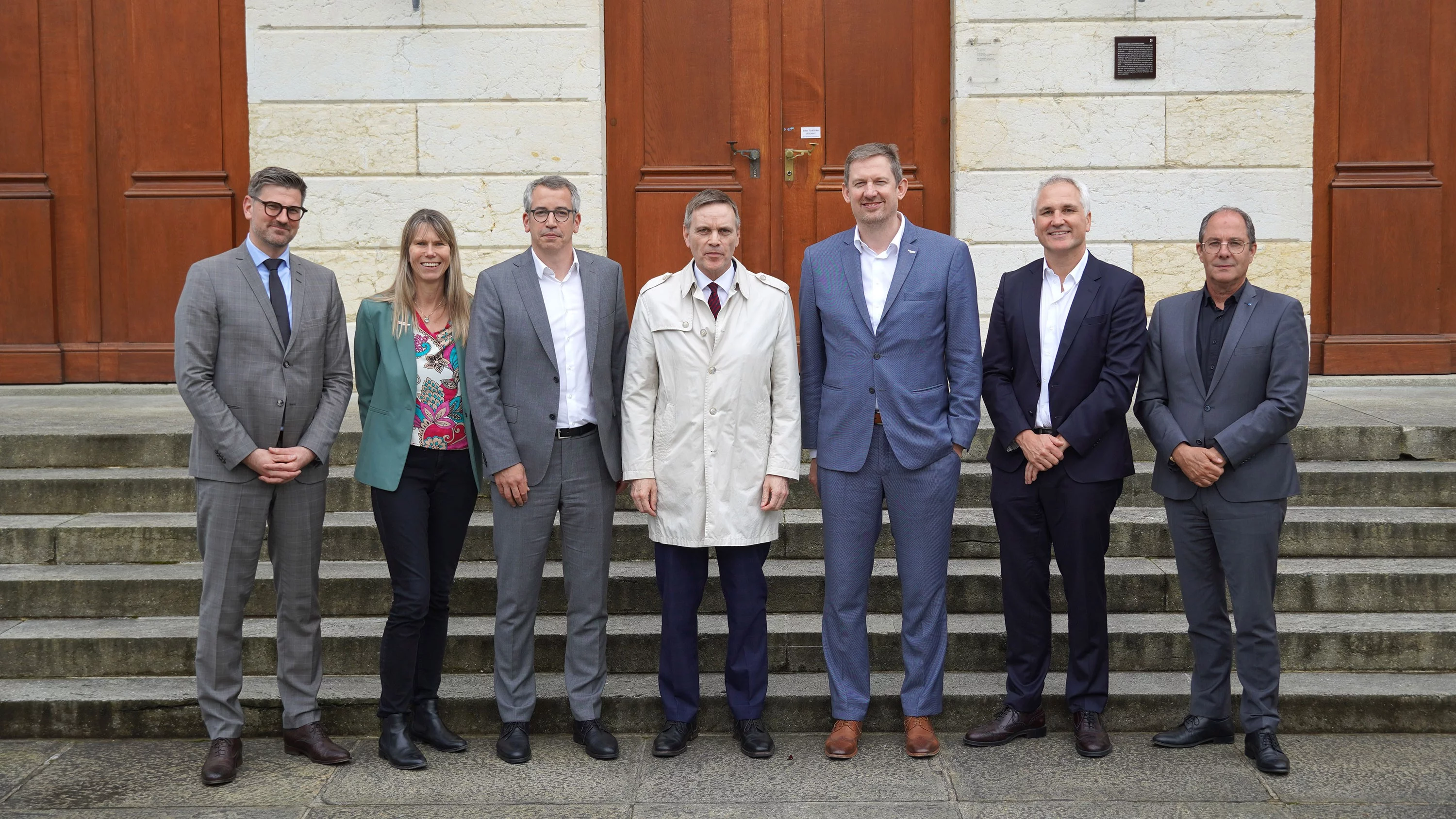In the future, doctors at Aargau hospitals will be able to apply for research support through the Association for Medical Research and Innovation in the Canton of Aargau. They can then conduct part-time research, together with teams at ETH Zurich, Empa, or the Paul Scherrer Institute PSI, for six to 24 months.
Advances in medical research and innovation benefit from close collaboration between physicians and researchers. However, the increasing time and cost pressure on the everyday work in a hospital makes it difficult for medical personnel to participate actively in research projects. As a result, the academic world is missing out on the everyday clinical experience they could bring to research. And without the involvement of medicial specialists, the incorporation of new scientific insights into practice lags behind.
Three hospitals in the canton of Aargau and three institutions of the ETH Domain are now tackling this problem together. On 3 June 2024, the Kantonsspital Aarau AG, the Kantonsspital Baden AG, the Hirslanden Klinik Aarau AG, ETH Zurich, Empa, and the Paul Scherrer Institute PSI jointly founded the Association for Medical Research and Innovation in the Canton of Aargau.
In future, doctors who work predominantly clinically at Aargau hospitals will be able to apply for research time through this association. During this research period, they will then work on joint projects with researchers of ETH Zurich, Empa, or the Paul Scherrer Institute. The research will be conducted part-time over a period of six to 24 months.
Financial contributions from the association will compensate the hospitals for the time doctors are thus enabled to devote to research. The association, in turn, is to receive one-time start-up funding totaling one million Swiss francs for the first five years from the participating institutions and hospitals (50%) as well as from the canton of Aargau (50%). The association plans to approve five to eight applications for research time each year. In the long term, the association is expected to be supported exclusively by third-party funds, for example from foundations or donors.
Combining diverse kinds of experience
«The strengths of the ETH Domain extend from fundamental research to the development of new technologies,» says Christian Rüegg, director of the Paul Scherrer Institute. «It is always important for us to establish contact with practice early in the process. For a new development to prove its worth in the area of medicine, we need the concrete experience of medical specialists.»
Rüegg points to the very successful collaborations that already exist between Aargau hospitals and the ETH Domain, including proton therapy and radiopharmacy at PSI, as well as the research cooperation between ETH Zurich and the Canton Hospital of Aarau known as Clinical – Research ETH@KSB. In the Canton Hospital of Aarau, there are also several joint projects with ETH Zurich under way concerning, for example, how robotics might aid in the care of stroke patients. In addition, Empa is active in the area of health and medical technology and is developing, together with different companies, medical implants as well as novel diagnostic and therapeutic approaches.
According to the participating institutions, the previous collaborations have shown that there is a need for a deeper and broader exchange. One of the main objectives of the new partnership is to transfer newly developed technologies and concepts from the laboratories of the participating research institutions to clinical practice more quickly and efficiently – so-called translational medicine.
Physician Jürg Hans Beer is also certain: «The newly founded association will enrich and accelerate new research and developments in medicine.» He heads a research group at the University of Zurich and also works clinically at the Canton Hospital of Baden. In the newly founded association, Beer now leads the evaluation committee that will review and evaluate submitted project proposals. «The tendering process is competitive, and we evaluate proposals according to clearly defined quality criteria,» Beer explains.
While clinics receive loss compensation from the association, the budget for the research projects themselves must be secured from other sources. Applicants must provide proof of financing for their projects when they submit their proposals.
Win-win for the research institutions, hospitals, and the canton
The ETH Domain sees the association as a building block in accomplishing the goal it has set for itself in the Strategic Plan 2025-2028, namely to contribute to solutions addressing the major challenges of our time, particularly in the area of human health. In concrete terms, the exchange promoted by the association will help to identify challenges in clinical practice, incorporate practical knowledge into new developments at an early stage, and test new results and innovations in the everyday clinical setting. Through this offer, the participating hospitals can boost their attractiveness as employers, and through the programme they will gain better access to research results and medical innovation. With this association, the canton of Aargau is investing in its own innovation power as it continues to position itself as one of the most innovative cantons in Switzerland.
Text: Paul Scherrer Institute PSI/Laura Hennemann
© PSI provides image and/or video material free of charge for media coverage of the content of the above text. Use of this material for other purposes is not permitted. This also includes the transfer of the image and video material into databases as well as sale by third parties.
Contact
About PSI
The Paul Scherrer Institute PSI develops, builds and operates large, complex research facilities and makes them available to the national and international research community. The institute's own key research priorities are in the fields of future technologies, energy and climate, health innovation and fundamentals of nature. PSI is committed to the training of future generations. Therefore about one quarter of our staff are post-docs, post-graduates or apprentices. Altogether PSI employs 2300 people, thus being the largest research institute in Switzerland. The annual budget amounts to approximately CHF 460 million. PSI is part of the ETH Domain, with the other members being the two Swiss Federal Institutes of Technology, ETH Zurich and EPFL Lausanne, as well as Eawag (Swiss Federal Institute of Aquatic Science and Technology), Empa (Swiss Federal Laboratories for Materials Science and Technology) and WSL (Swiss Federal Institute for Forest, Snow and Landscape Research). (Last updated in June 2024)



